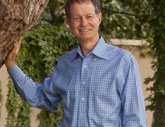3 lessons From Whole Foods
Fresh ideas from co-CEO John Mackey
- |
- Written by Lisa Joyce
 Ken Wolter / Shutterstock.com
Whole Foods’ Co-Chief Executive Officer and Co-Founder John Mackey gave bankers some fresh ideas at the 2014 BAI Retail Delivery Conference
Ken Wolter / Shutterstock.com
Whole Foods’ Co-Chief Executive Officer and Co-Founder John Mackey gave bankers some fresh ideas at the 2014 BAI Retail Delivery Conference
“We couldn’t have civilization without banks but banks never articulate that value,” said Whole Foods’ John Mackey. “Instead, they are always having to defend themselves.”
John Mackey, co-founder and co-CEO of Whole Foods, believes that you can get ideas and innovations from anywhere. So what can banks learn from a food retailer known for their support of healthy living?
Plenty, believes Mackey. His keys for business success can be embraced by any industry, including financial services. Here’s what banks can take away from Mackey’s keynote presentation on day two at BAI’s Retail Delivery show.
1. Have a higher purpose.
“Pu John Mackeyrpose is extremely important but misunderstood,” said Mackey, noting that other professions do a much better job than bankers of expressing their purpose: Teachers educate, doctors heal and journalists uncover the truth. Ask anyone what the purpose of a business is and they will likely reply “to make money.”
John Mackeyrpose is extremely important but misunderstood,” said Mackey, noting that other professions do a much better job than bankers of expressing their purpose: Teachers educate, doctors heal and journalists uncover the truth. Ask anyone what the purpose of a business is and they will likely reply “to make money.”
But making money is only a part of the story, said Mackey, calling businesses such as banks the “economic engine that lifts our communities out of poverty and fuels human progress.”
Unfortunately, he said, banks do a terrible job of justifying their existence. That’s even though banking has a great purpose of providing money to fuel economic growth.
Mackey fondly retells how, after a flood damaged an Austin Whole Foods years ago, his bank loaned him money to rebuild based on his signature “which was worth nothing at the time,” laughed Mackey.
“We couldn’t have civilization without banks but banks never articulate that value,” said Mackey. “Instead, they are always having to defend themselves.”
Having a higher purpose increases employee engagement as well. “Employees want to know that their work makes a difference and how it creates value,” said Mackey, adding that businesses do a poor job showing employees how their actions fits into the bigger picture.
2. Look for ideas from your competitors and non-banking industries.
Mackey encouraged banks to look for inspiration from industries outside of financial services to get past what he called “industry groupthink.”
“Your little world won’t stay safe,” he warned. Whole Foods not only closely watches its competitors, but learns what it can from industries such as technology and restaurants.
“We are constantly learning from our competitors. I feel that we are on a joint quest for excellence,” Mackey explained.
He also noted that being complacent can be deadly.
“Someone is always trying to disrupt your business. Competition forces us to get better,” he said. [For more about disruption, see, “King, of the disruptors,” about the views of financial futurist Brett King.]
3. Let employees feel the love.
Another Mackey business tenet is that all stakeholders—including employees—must flourish in order for the business to flourish.
Whole Foods has been in Fortune’s 100 Best Companies To Work For the past 15 years. Mackey is committed to making sure that employees know that the organization cares about them, bemoaning what he calls businesses’ propensity to “keep love in the closet.” “Employees need more love,” he stated simply.
That “love” must be authentic and sincere.
“We as humans crave authenticity but we don’t get it,” said Mackey, noting that he has never felt that a U.S. president has actually cared.
“They are skilled liars. It’s so sad. We want our leaders to tell the truth,” said Mackey.
Mackey jokingly dispelled the myth that Whole Foods only hires employees with tattoos and multiple piercings.
What’s most important, said Mackey, is attitude. “Everything else can be taught.”
He encouraged bankers to spend time thinking about the happiness and well-being of their employees.
Tagged under Retail Banking, CSuite, Viewpoints, Customers, Feature,














